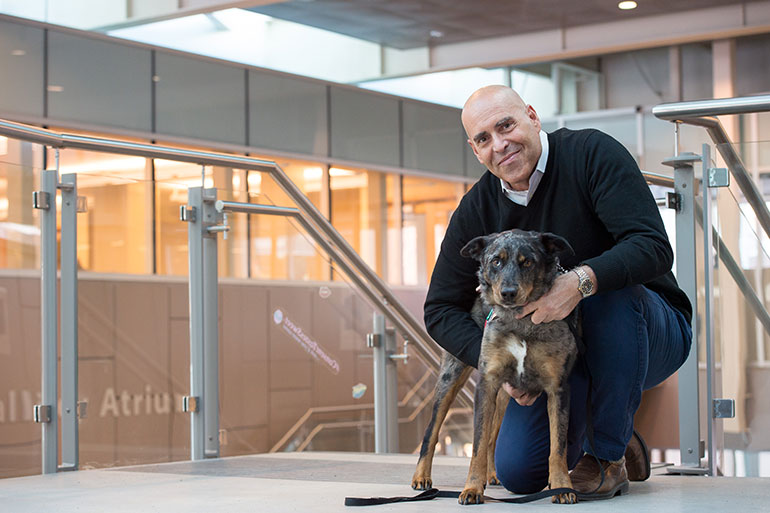
Faculty of Education welcomes Iranian academic to UBC’s Okanagan campus
The apple does not fall far from the tree in the Okanagan valley this year.
Hamid Javdani says it is “a fortunate coincidence” that he has joined his son Assistant Professor Mohsen Javdani at UBC’s Okanagan campus as a visiting scholar in the Faculty of Education. 10,000 km has separated Father and Son since junior Javdani joined UBC Okanagan’s Economics Department in 2012. Senior Javdani is an Associate Professor at the Institute for Research and Planning in Higher Education, in Iran’s most populous city and its capital, Tehran.
“I never imagined that I would be able to spend so much quality time with my son, and I have the support and generosity of the UBC, its faculty and administration to thank for this opportunity,” says senior Javdani.
“The Faculty is thrilled to welcome and collaborate with Dr. Javdani,” says Associate Dean, Dr. Susan Crichton.
“Dr. Javdani’s research on education policy-making aligns with the Faculty’s diverse research programs.”
This year marks the second time that both Father and Son have attended the same institution. Javdani Father and son attended the same campus in Iran when they completed their respective PhD and undergraduate degrees.
“Spending time with Mohsen again on the same campus reminds us of the older days,” says Dr. Javdani, “It has created for both of us a precious and unforgettable memory after living away from each other for many years.”
Q & A with visiting scholar Dr. Hamid Javdani
What is different about your workday here vs. in Iran?
In terms of research, I have kept to the same routine as I did in Iran; however, being part of a friendly and vibrant academic environment here at UBCO has made me more motivated and excited to work on my research. I feel more efficient, yet more relaxed and energized. Kelowna, its beautiful nature and great amenities, as well as its kind people have also played an important role in my positive experience.
What has your experience at UBC’s Okanagan campus been like so far?
I am having a very pleasant experience here at UBCO, and I am happy to have the opportunity to be a part of this vibrant community for a year. I have had the pleasure to interact with extremely friendly, supportive and professional faculty and staff members in the Faculty of Education, which has made my visit both memorable and fulfilling. I am also glad to have access to all the resources available here at UBCO which have helped me a lot in my research.
How has your time as a visiting scholar influenced your research in Education Policy Making?
I am currently working on a research project related to Education Policy Making. Universities around the world, in both progressed and progressing countries, currently face important challenges that require careful attention and scrutiny. Some of these challenges include academic freedom, academic autonomy, unequal allocation of resources to different disciplines driven by a market-oriented approach to returns to education, and provision of equal opportunity to different groups of students to access good quality and relevant education.
My time here at UBCO has given me the opportunity to participate in several meetings, organized by the university, faculty of education, the Board of Governors, as well as Faculty Association, where some of these issues were discussed. I have also been able to interact with faculty members who have written and worked in these areas, and have benefited significantly from their experience, knowledge and approach. This suggests to me that institutions like UBC have taken these challenges seriously and are vigilant in addressing them.
You have a long list of research interests, what is your current focus? What questions are you presently asking?
I study the role of education policy in shaping objectives set and directions taken by universities, and its consequences on academia, knowledge creation, and the society. The following are some of the main questions I address in my current research:
- What are the dominant approaches of policy makers and academics, in both micro and macro levels, in governing the higher education system?
- To what extent the policies designed at the micro level are consistent with macro-level policies?
- What are the structures and processes that shape education policy? How these structures and processes have been shaped and why?
- To what extent the designed education policies are relevant to educational policy research?
- What are the gaps between these policies and their implementation in practice? And what are the factors that create these gaps?
-30-




